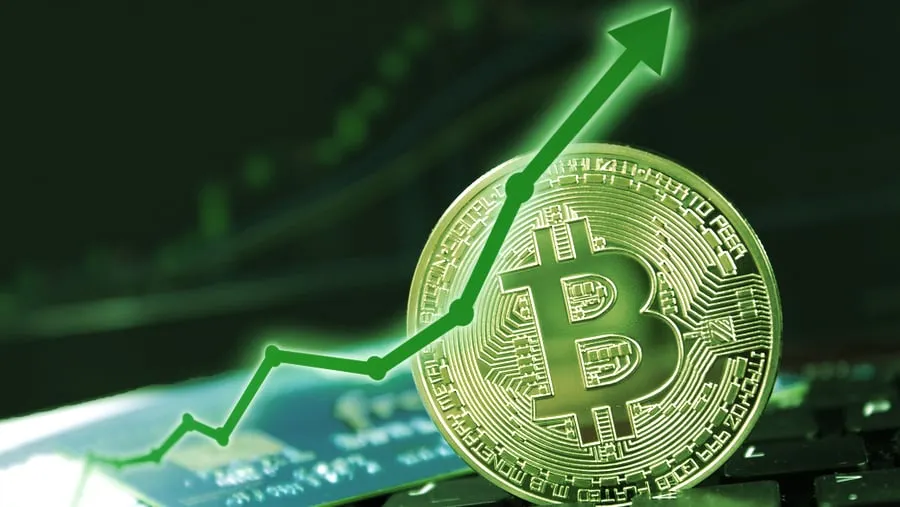Bitcoin is currently priced at a touch over $50,000, the first time that the cryptocurrency has been valued above the $50,000 bracket since May of this year.
But what forces propelled Bitcoin back above that marquee figure? And how significant is it, in the long term?
“The overall narrative right now is insanely bullish,” Jason Deane, Bitcoin analyst at Quantum Economics, told Decrypt, noting that “There are a multitude of reasons for Bitcoin’s price action right now.”
Bitcoin’s rise to $50,000
Those reasons, Deane argued, included “a continuation of increasing active wallet addresses and an accumulation pattern that is indicating a possible incoming supply restriction on exchanges.”
According to Curtis Ting, managing director at Kraken for Europe, the Middle East, and Africa, open interest for Bitcoin futures “surged upwards this morning, suggesting renewed speculation on the Bitcoin price.”
What’s more, Deane suggested that international news surrounding Bitcoin—like PayPal launching crypto services in the UK and anticipation over El Salvador’s Bitcoin law soon coming into effect—could be playing a role in Bitcoin’s increasing price.
In the last 30 days, Bitcoin’s price has increased from $33,000, representing a percentage increase of 51%. Despite that growth, it's been a tumultuous period for Bitcoin.
Earlier this month, the U.S. Senate passed President Biden’s mammoth infrastructure bill, which included some troublesome implications for Bitcoin and the wider crypto industry. The bill’s wording appeared to expand tax requirements for non-custodial crypto actors such as miners—a move crypto advocates said could undermine crypto innovation.
The past month also saw Securities and Exchange Commission (SEC) chair Gary Gensler weigh in on Bitcoin, who described it as merely a speculative asset that doesn’t meet the requirements of actual currency.
That Bitcoin's price increase has taken place in spite of these negative headlines, suggests that it has become increasingly resilient to the news cycle; unlike earlier in the year when Tesla’s U-turn on Bitcoin tanked the cryptocurrency's price by almost 25% in a single week.
What about Bitcoin mining?
Bitcoin mining could also have played a role in the cryptocurrency’s bounce back above $50,000.
Ever since China cracked down on the Bitcoin mining industry in June, miners have been capitalizing on a decline in competition. In fact, a report from Arcane Research recently suggested that daily Bitcoin mining revenue was up 10% in just a week, with Bitcoin miners now raking in an estimated $35 million a day.
“Less competition = higher profitability for the miners still operating,” said Will Clemente, an analyst with mining consultancy firm Blockware Solutions.
Clemente added an observation that miners have been stockpiling their Bitcoin, rather than selling it, implying that they believe the price of the cryptocurrency will continue to increase.
Does breaking the $50,000 barrier matter?
When Bitcoin first hit $50,000 in February 2021, the price increase validated a wave of institutional interest in the cryptocurrency that had been evident for months prior.
That wave of institutional investment began when software company MicroStrategy bought $250 million in Bitcoin last summer. By the end of 2020, MicroStrategy had amassed half a billion dollars worth of Bitcoin.
Following MicroStrategy’s lead, companies like Square and Ark Invest—and investors like Stanely Druckenmiller—all placed big bets on Bitcoin, driving the price up to its all-time high of $63,000.
Alongside institutional investment, other major firms integrated Bitcoin into their offerings; most notably PayPal, which in October 2020 announced that it would introduce crypto buying and selling features for its users.
The online payments giant today announced that it would roll out its crypto services to the UK, in the scheme's first expansion outside the U.S.
Bitcoin's push through the $50,000 price barrier is also undoubtedly a psychological milestone. Deane told Decrypt that “the longer the price stays above this level, the more likely it is to become strong support.”
But for all the excitement that surrounded Bitcoin’s last foray above $50,000, the cryptocurrency remains a volatile proposition; it all came crashing down earlier this summer, with the price tumbling to under $30,000 in July.

